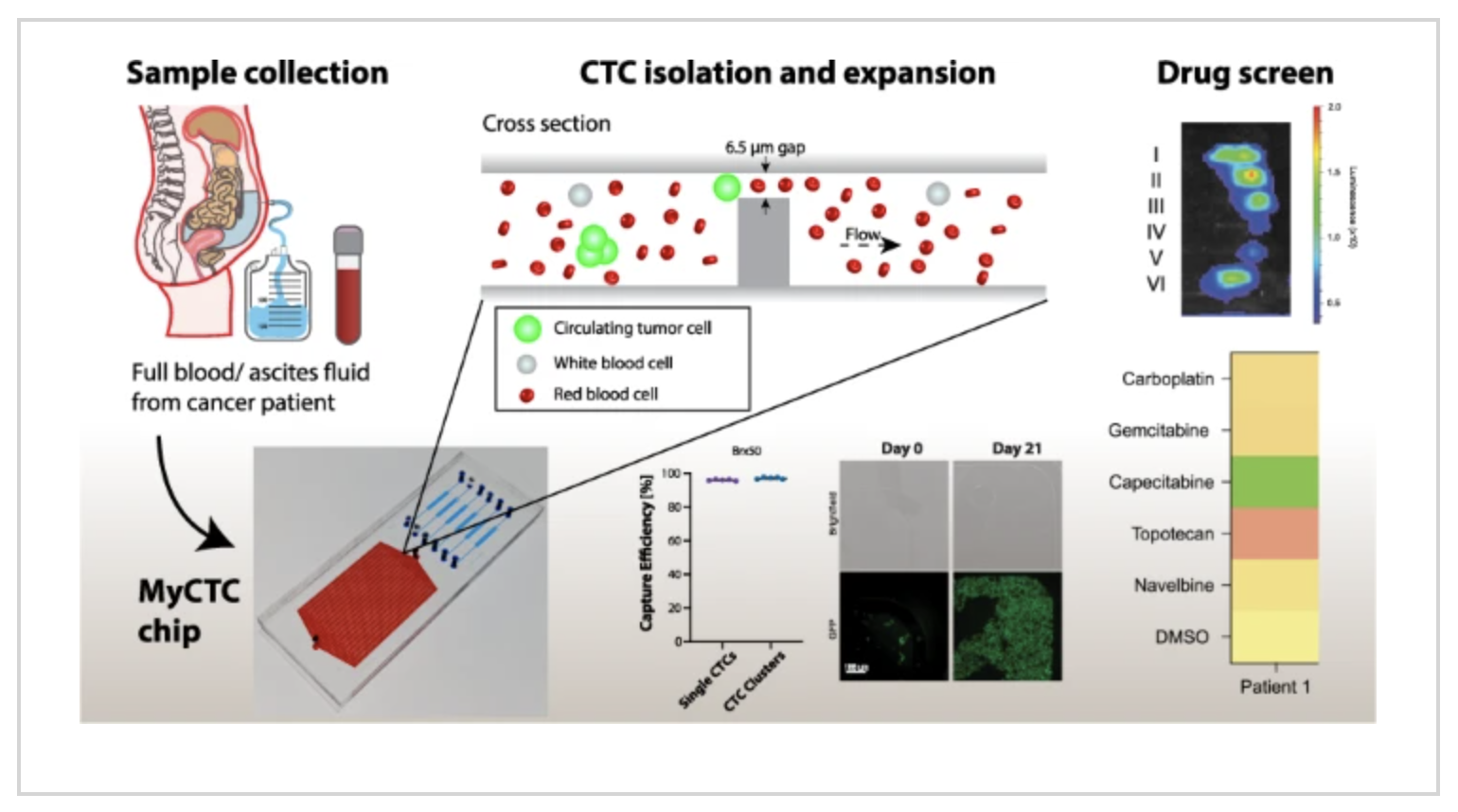Congrats Dr André Kling with co-authors to the new publication!
"MyCTC chip: microfluidic-based drug screen with patient-derived tumour cells from liquid biopsies"
Authors
Fabienne D. Schwab, Manuel C. Scheidmann, Lauren L. Ozimski, André Kling, Lucas Armbrecht, Till Ryser, Ilona Krol, Karin Strittmatter, Bich Doan Nguyen-Sträuli, Francis Jacob, André Fedier, Viola Heinzelmann-Schwarz, Andreas Wicki, Petra S. Dittrich & Nicola Aceto.
Abstract
Cancer patients with advanced disease are characterized by intrinsic challenges in predicting drug response patterns, often leading to ineffective treatment. Current clinical practice for treatment decision-making is commonly based on primary or secondary tumour biopsies, yet when disease progression accelerates, tissue biopsies are not performed on a regular basis. It is in this context that liquid biopsies may offer a unique window to uncover key vulnerabilities, providing valuable information about previously underappreciated treatment opportunities. Here, we present MyCTC chip, a novel microfluidic device enabling the isolation, culture and drug susceptibility testing of cancer cells derived from liquid biopsies. Cancer cell capture is achieved through a label-free, antigen-agnostic enrichment method, and it is followed by cultivation in dedicated conditions, allowing on-chip expansion of captured cells. Upon growth, cancer cells are then transferred to drug screen chambers located within the same device, where multiple compounds can be tested simultaneously. We demonstrate MyCTC chip performance by means of spike-in experiments with patient-derived breast circulating tumour cells, enabling >95% capture rates, as well as prospective processing of blood from breast cancer patients and ascites fluid from patients with ovarian, tubal and endometrial cancer, where sensitivity to specific chemotherapeutic agents was identified. Together, we provide evidence that MyCTC chip may be used to identify personalized drug response patterns in patients with advanced metastatic disease and with limited treatment opportunities.
Read more about it external page here!
